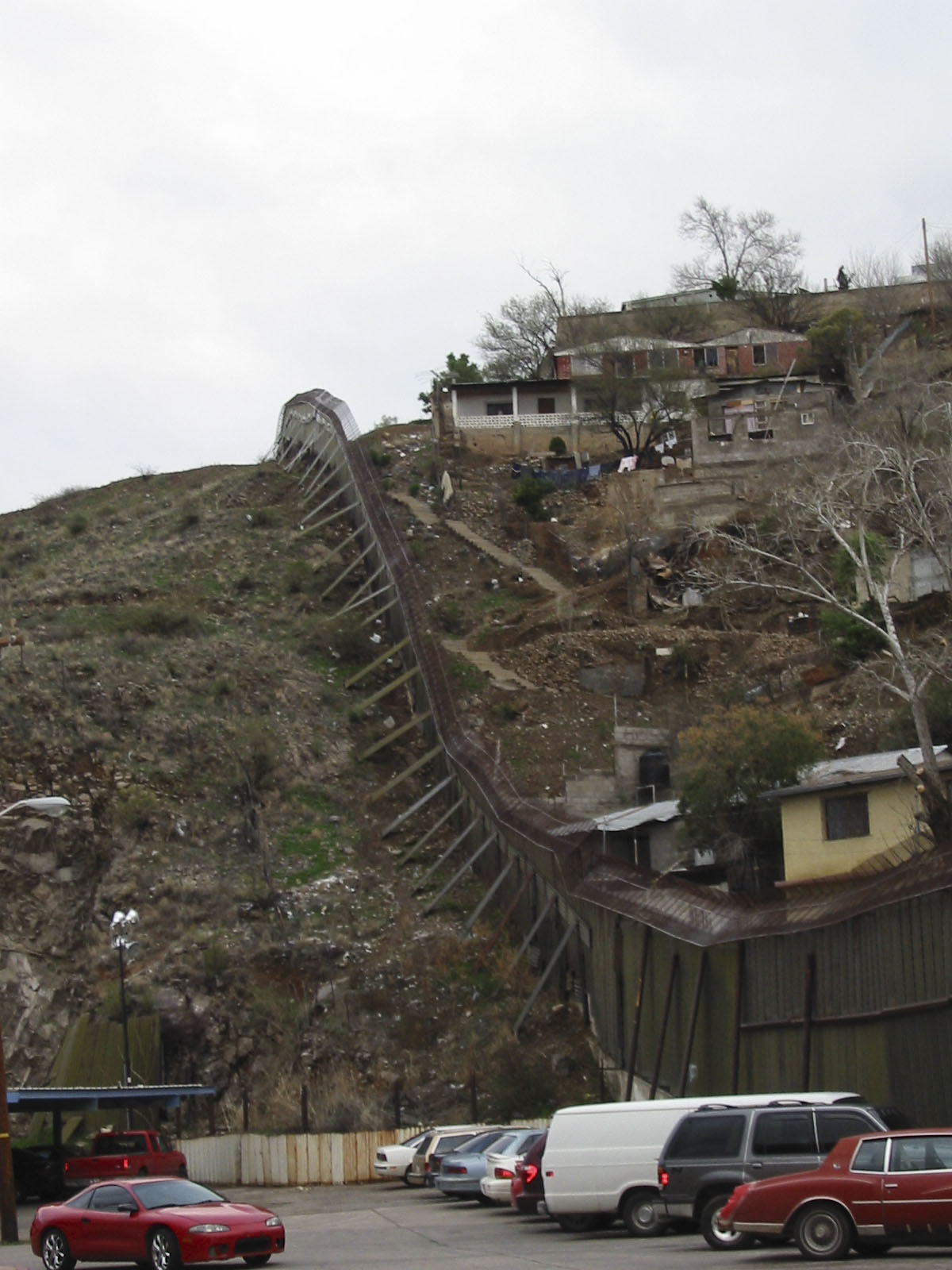Trump threatens sanctions against Mexico
June 4, 2019 | Expert Insights

Background
The Mexico–United States barrier, sometimes colloquially called the Border Wall, is a series of vertical barriers along the Mexico–United States border. It is aimed at preventing illegal crossings from Mexico into the United States. The barrier is not one contiguous structure, but a discontinuous series of physical obstructions variously classified as "fences" or "walls." The Mexico-US border is the most frequently crossed border in the world, running a total length of 3,145 kilometres.
Throughout his 2016 presidential campaign, Donald Trump called for the construction of a much larger and fortified border wall, claiming that if elected, he would "build the wall and make Mexico pay for it." Mexican authorities have refused to pay for the wall. The Trump administration has painted the situation on its southern border as a "crisis."
Analysis
The US-Mexico border has recently seen a surge in the number of illegal immigrants. US officials say 80,000 people are being held in custody, while an average of 4,500 migrants arrives daily. White House officials have said that Mr Trump was particularly concerned when US border agents apprehended a group of 1,036 migrants as they attempted to cross the border.
President Trump has vowed to impose a tariff on all goods coming from Mexico, starting at 5%. He said that it would steadily increase until the flow of people is "remedied." The tariffs would start in early June 2019 and increase monthly up to 25% by October 2019, unless Mexico takes immediate action.
Analysts believe that the measure is a direct challenge to Mexican President Andres Manuel Lopez Obrador. Mr Obrador's government had just begun to ratify the newly signed trade deal with the US and Canada. President Obrador has dispatched his Foreign Minister to Washington to discuss the development. He did not threaten to retaliate, saying he wanted to avoid confrontation. However, Mr Obrador pushed back against Mr Trump's position that Mexico allows immigration through "passive cooperation." Since Mr Trump threatened to impose a 25% tariff on cars from Mexico, the Obrador government has tightened immigration controls. It has detained and deported thousands while requesting US aid to tackle root causes.
Mr Trump had previously declared a national emergency at the border to divert federal funds for a border wall. However, in May 2019, a federal judge blocked his efforts. The White House said President Trump would use the International Emergency Economic Powers Act to implement new tariffs. The Trump administration also told Congress it was planning to secure a new trade deal with Mexico and Canada.
The US struck a new deal with Mexico and Canada to replace the 25-year-old North American Free Trade Association. In early May 2019, Washington removed tariffs on steel and aluminium products to speed up the ratification process.
Mexico is the US's biggest trade partner for goods and is heavily dependent on cross-border trade. Mexico became America's largest trade partner after Mr Trump began his trade war with China. Imports from Mexico total US$ 346.5 billion according to the United States Trade Representative. The country is also a manufacturing hub for many US firms such as Ford, GM, John Deere, IBM and Coca Cola. Many multinational companies also operate in the country. Japanese companies such as Toyota, Nissan and Mazda who have manufacturing plants in Mexico, saw their share prices fall.
The impact on these manufacturers is unknown. Analysts have pointed out that components that go into these products can move back and forth between Mexico, the US and Canada up to 20 times before final assembly. Each crossing is likely to result in duties under Mr Trump's new tariffs.
Assessment
Our assessment is that by following through with his threat to impose a 5% tariff on all goods from Mexico, President Trump will, in turn, be lowering profits for American importers and raising prices for American consumers in the short run on everything from avocados to automobiles. In the long run, we feel that such duties will compel American companies to refrain from the continent-spanning supply chains that have made North America one of the world’s most economically interconnected continents.
According to a recent study, approximately 30% of the content of Mexican exports originate in the United States itself, thus implying that the United States is now basically taxing themselves on their own goods.
American automakers, oil prices, grocery bills, and medical device makers alike will almost definitely be adversely affected by these tariffs, with the middle class likely to bear the brunt of the Trump administration’s misguided decision-making. To this end, we believe that the US Congress is better off ratifying the US-Mexico-Canada Agreement rather than the proposed incrementing tariffs on Mexican goods with a view of symbiotically augmenting economic prosperity against giving up on its own economic welfare just for the sake of sanctioning the Mexican government for something it cannot entirely control.








Comments